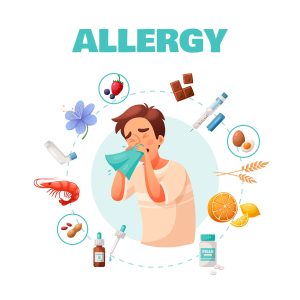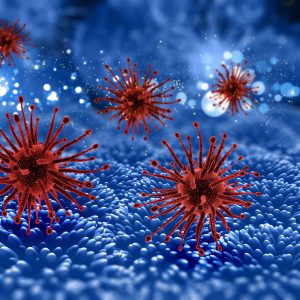If you’ve ever felt like you have a cold that never seems to go away — with constant congestion, a reduced sense of smell, or facial pressure — you might be dealing with more than just allergies. This could be signs of nasal polyps, a common but often misunderstood condition linked closely to chronic inflammation and allergies .
What Are Nasal Polyps? Nasal polyps are soft, painless, noncancerous growths that develop on the lining of your nasal passages or sinuses. They often appear in clusters and can cause blockages that make breathing difficult. Think of them as small balloons of inflamed tissue — your body’s way of overreacting to chronic irritation.
How Allergies Trigger Nasal Polyps Allergies are one of the major culprits behind nasal polyps. When allergens such as dust, pollen, or pet dander enter your nose, your immune system can go into overdrive. This constant allergic inflammation irritates the nasal lining, and over time, polyps may form.
Common triggers include: – Seasonal pollen (hay fever) – Dust mites – Mold spores – Pet dander – Certain foods (in some sensitive individuals)
Symptoms to Watch For Because nasal polyps grow slowly, symptoms often creep up. You might notice: – Persistent nasal congestion or stuffiness – Runny nose that doesn’t improve with allergy meds – Reduced or lost sense of smell (anosmia) – Facial pain or pressure – Postnasal drip – Snoring or sleep disturbances
Diagnosing Nasal Polyps Doctors usually diagnose nasal polyps through: – clinical examination A nasal endoscopy (using a tiny camera) – CT scans to check the extent of sinus blockage – Allergy testing to identify triggers
Treatment and Management While nasal polyps can’t always be permanently cured, they can be managed effectively with the right care.
- Medication – antihistamines and intranasal drugs
- Allergy Management – Identify and avoid your allergy triggers Consider allergy shots (immunotherapy) for long-term relief
- Surgery (if needed) When medications don’t help, a polypectomy or endoscopic sinus surgery {fess} may be recommended to remove the polyps and improve airflow.
Living with Nasal Polyps Lifestyle habits make a huge difference. Try: – Keeping your home dust-free and humidified – Avoiding cigarette smoke and strong fragrances – Practicing nasal hygiene (daily saline rinses) – Managing stress, which can worsen Inflammation
Final Thoughts Nasal polyps are a sign that your body’s immune system is in overdrive. By addressing the root cause — often allergies or chronic sinus inflammation — you can breathe easier and reduce the chance of recurrence.
If you’re struggling with ongoing nasal congestion, don’t just assume it’s “allergies.” Get evaluated by a healthcare professional — relief might be closer than you think.
Dr. Suhas CMV
MBBS, MS-ENT
Consultant – Otorhinolaryngology & Head and Neck Surgeon














